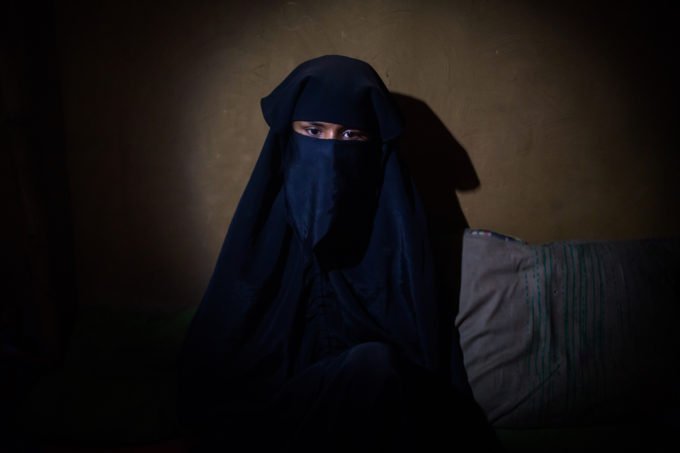
R&K Insider: The Unwilling Smugglers

This week on R&K, we published a harrowing tale about the Rohingya refugees in Bangladesh, where women are working for the drug gangs as mules, transporting “crazy pills” from the border to the coastal cities.
This post originally appeared on April 6, 2018, in Anup Kaphle’s weekly newsletter. Read the archives and subscribe to the newsletter.
Good morning, dear readers.
Yesterday, we published a harrowing tale about the Rohingya refugees in Bangladesh. Writer Matthew Bremner traveled to the refugee camps in a port city near the Myanmar border, where he met with women and men who have been ferrying drugs to Bangladeshi gangs.
Last year, the Rohingya began fleeing Myanmar after their homes were burned down and their loved ones were tortured and murdered by government forces. Following their perilous journeys across a river to a new country where have been living in huts made from tarpaulin and tree branches, they’re now being forced into dealing with another nightmare. Women and young men are working for drug gangs as mules, transporting yaba, also known as “crazy pills,” from the border to the coastal cities in Bangladesh, where the methamphetamine pills have been gaining popularity in recent years. Their new hosts, the Bangladeshi government, won’t let them work and without work, they can’t feed their children. “We have no choice,” one of the refugees said. Here’s how one drug dealer described why he preferred to work with women refugees:
Gafur says many drug dealers, himself included, use refugees like Khatun and Begum to get the drugs from the border to the camps and then into Cox’s Bazar. He said he favors female smugglers for two reasons. One, because if they are single and desperate for work like Khatun, they are easier to manipulate; and, two, because women are less likely to be checked than men.
Khatun’s stories confirm Gafur’s assertions. Her supplier had often instructed her to exploit the fact she is a woman. He recommended she bring her baby along with her on the drug runs. He said it made her seem innocent, less suspicious.
Read the full story and share it with your friends.
Also on R&K this week:
Cat of the Revolution: When a series of protests in Tunisia sparked a revolution in 2011, Nadia Khiari anonymously shared cartoons featuring a cat called Willis on Facebook as a way to vent her thoughts about the Arab Spring. Since then, Khiari’s cat cartoons have become a popular commentary on the country’s politics as well as social issues like women’s rights, police brutality, and homosexuality. It’s been seven years since those protests that toppled a dictator, but Khiari says she hopes there is another uprising.
Hello, Calabria: Can you believe that a place filled with superlative beaches by the splendid blue seas is one of Italy’s least-visited regions? You ought to fix that—and we’re here to help. How do fiery peppers (great for tossing with your pasta and warding off the evil eye), spreadable spicy sausage (two words: black pig), and crazy good pizza (protip: eat pizza topped with Calabrian tuna and Tropea red onion) sound? Yep, that’s exactly what I thought.
Here’s what I liked elsewhere:
Our cookbooks are too white: “The overwhelming whiteness in cookbooks, both historically and currently, means that authors of color are often denied a chance to tell their stories through every part of the creation process.” That’s what Julia Turshen says in this terrific piece, arguing why cookbooks are ideal for fighting injustice.
A rapper from a “forgotten” country: Taher Raad, 22, left Baghdad and moved to Istanbul because he wanted to build a career in music. Now, as a rapper, he presents the other side of his home country—“what the media doesn’t cover: what Iraqi people feel.”
By the way, did you catch the international incident caused this week by a chicken dish? One of the judges on MasterChef UK became the subject of ridicule and criticism across Southeast Asia (even the Malaysian prime minister chimed in) because he told a contestant on the show the chicken rendang dish she prepared didn’t have a crispy skin. Within 24 hours, the news was everywhere.
Last week, I wrote about goats. For those who asked how my Project Sri Lankan Goat Curry went, let me tell you: it was a tremendous success. Some of you wrote to me to inquire how I could stand the smell of cooking goat in the kitchen. Guys, that’s where the spices come into play. There were a couple of you who said you were disappointed by my bias because I focused mostly on curried goat and did not mention a word about birria. Here’s my offer to make up for it: if any of you have a great story you want to tell about your grandmother’s birria, or you can’t forget that one time you had the best birria in your life, pitch me a story at anup@roadsandkingdoms.com.
I’m also thrilled to announce three talented editors who will be joining the R&K family. Cengiz Yar returned from Iraq this week after several years covering ISIS and the refugee crisis as a photojournalist and reporter. He will be R&K’s new Photo Editor, overseeing our visuals for both Roads & Kingdoms and our sister-site Explore Parts Unknown. Danielle Renwick, an Emmy-award winning alum of the Council on Foreign Relations who spent the past few years reporting on food and migration in Latin America, will be senior editor at Explore Parts Unknown. She’ll be joined there by Tafi Mukunyadzi, who is coming from the Associated Press to be our new associate editor, and will start just as soon as she’s back from a family wedding in Zimbabwe.
Please join me in welcoming Cengiz, Danielle, and Tafi to R&K!👏🏽👏🏽👏🏽
I’ll see you all here next Friday.
Please follow us on Twitter and Facebook, and encourage your friends and family to subscribe to this newsletter.
[Top photo by Sebastian Castañeda]